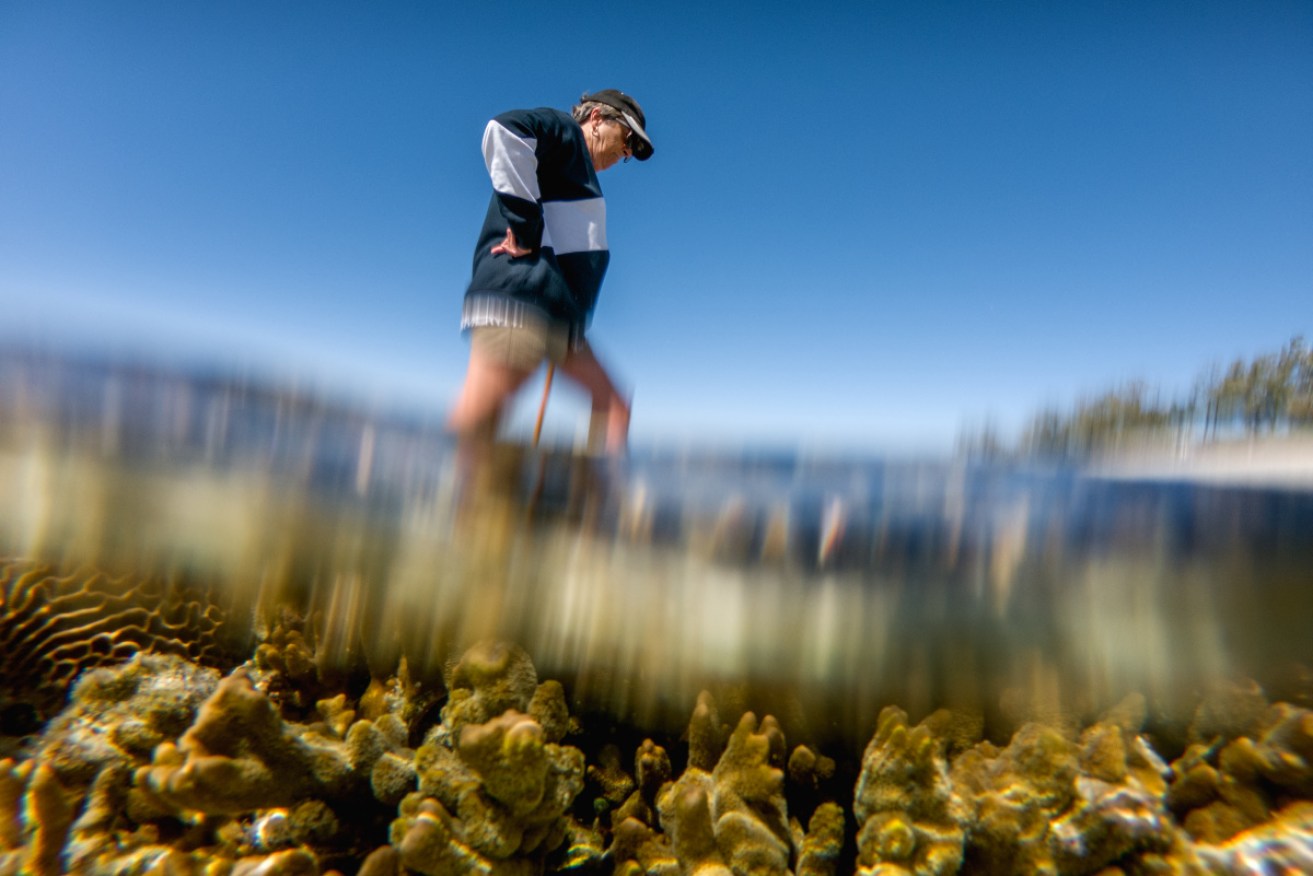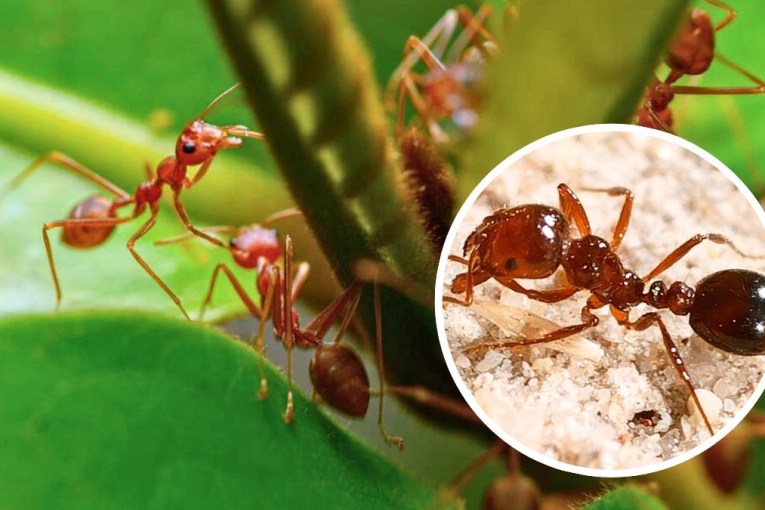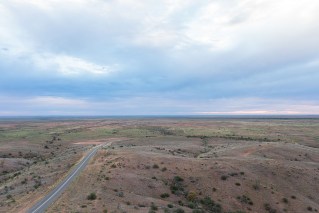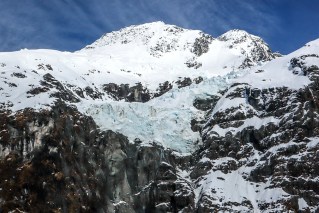Small window to save coral reefs, study finds

A tourist hikes at low tide through coral in Queensland in 2010, where climate change had already caused mass bleaching. Now scientists warn that time is running out for healthy coral reefs worldwide. Photo: Getty
Time is running out to save coral reefs worldwide, according to a new study by James Cook University highlighting the threat posed by carbon dioxide emissions.
The new research indicates there is a small window of opportunity to reduce the effect of emissions on reefs, and shows how warmer waters and ocean acidification stunt the growth of coral.
Warming oceans, marine heatwaves and ocean acidification cause mass coral bleaching and affect the ability of corals to form their calcium carbonate skeletons.
The JCU study was calculated under three different climate change carbon dioxide scenarios – low, medium and worst-case.
It found that under a medium emissions scenario, some reefs may keep pace with sea-level rise by growing – but only for a short while.
The projections show that even under the low-impact case, reefs will suffer severely reduced growth.
“The threat posed to coral reefs by climate change is already very apparent, based on recurrent episodes of mass coral bleaching,” said co-author Professor Pratchett.
“Saving coral reefs requires immediate and drastic reductions in global carbon emissions.”
‘Crippling damage’ by the year 2100
His colleague Dr Scott Smithers said that by the year 2100 reefs worldwide could face crippling damage.
“All reefs around the world will be eroding by the end of the century under the intermediate scenario,” Dr Smithers said.
“This will obviously have serious implications for reefs, reef islands, as well as the people and other organisms depending upon coral reefs.”
Data from the study came from the world’s largest oceans and was measured from 233 locations across 183 distinct reefs.
-AAP








